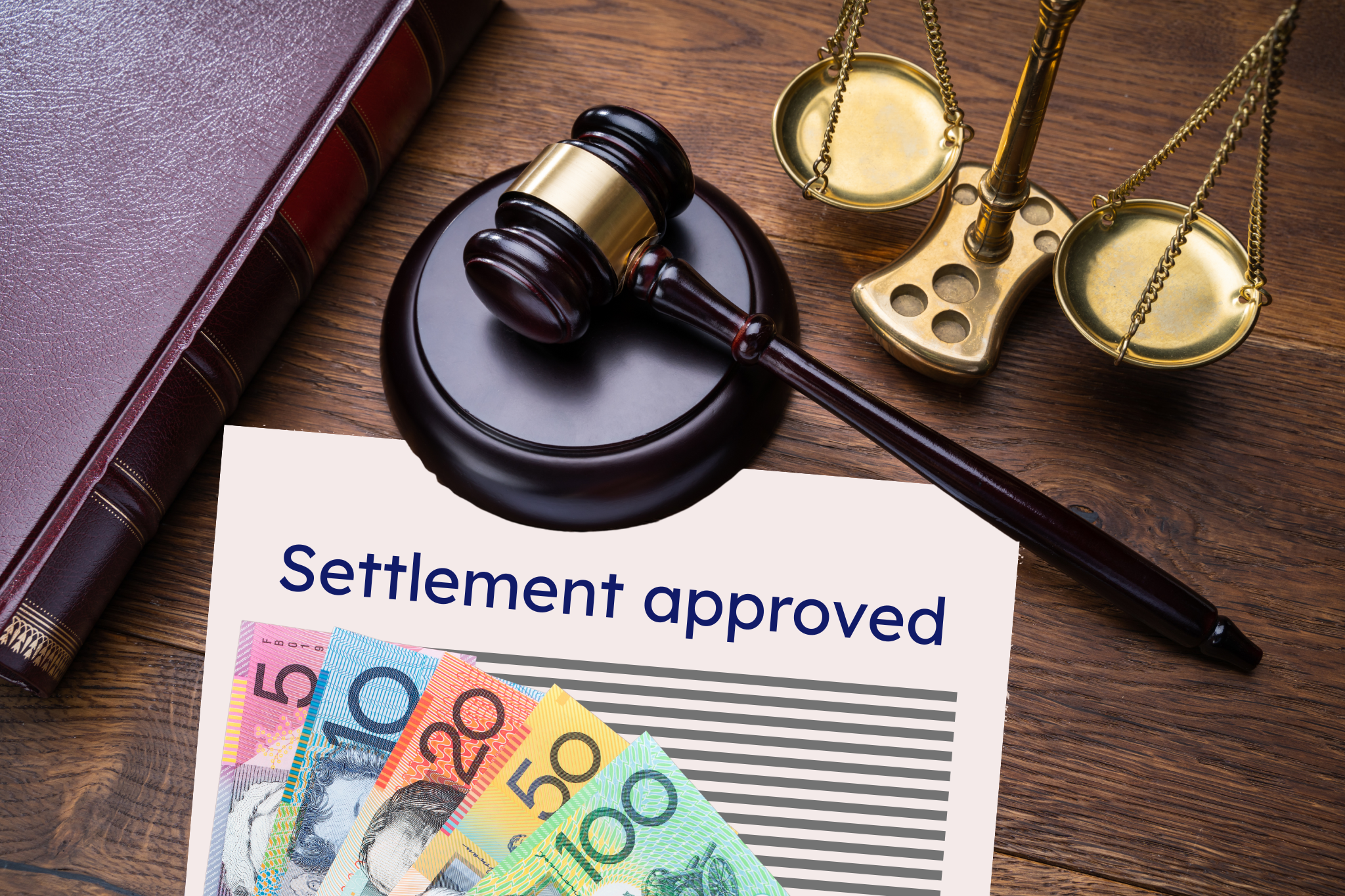
Curious about cryptocurrency? Do your homework
More than four million Australians, or almost 20 percent of the total population, own a crypto asset. And the number is rising every day. You may have read about people like Regan Gallagher, who got into the crypto game early and did very well indeed.
On the flipside, there are those who have lost everything to cryptocurrency scams. In August last year, the Australian Competition and Consumer Watchdog reported Australians lost more than $70 million and predicted that amount to double within six months.
So what exactly is cryptocurrency? Is it the currency of the future or just another way to make, or lose, money? We take a closer look.
How cryptocurrency works

Cryptocurrency is another way to exchange money. Its value, however, is not a digital representation of gold or fiat. Instead, the value is determined by users. And rather than banks controlling the records of financial transactions, thousands of computers run a ledger.
But it does follow some principles of traditional currency:
- Physical money is printed with serial numbers and relevant details. Cryptocurrencies are created using software.
- With traditional paper currency, there are paper/plastic bills or coins; with cryptocurrency, you get digital assets in the form of numbers and letters.
- Each bill has a unique serial number, which represents information such as when and where the bill was printed. A record of each printed bill is kept by central bank, which it then shares with smaller banks. If you have bank accounts, your account number and name are also stored in this record, as well as any debit and credit card you have. Similarly, each cryptocurrency coin is like the serial number on paper bills.
- Bills can be divided into smaller ones, such as dollars into cents. Cryptocurrencies, particularly Bitcoin, can be divided into smaller amounts called Satoshi.
- Physical money is stored in central banks and to make online transactions, you need a username and PIN. In the same way, cryptocurrencies are stored in blockchains and you need a PIN, usually stored in a specialised crypto wallet, to access your coins. A crypto wallet address is like your bank account.
- When you transfer $10 from your bank to a merchant’s account, the entities who have access to the record will see and confirm that $10 was successfully moved from your account to the merchant’s. In the same way, a transfer of one crypto coin from one user to another is seen and confirmed by the computers connected to the cryptocurrency network.
How do you get cryptocurrency?
There are several ways to get cryptocurrency coins. The most popular way is by mining them. Mining cryptocurrencies involves using computer hardware to solve complex mathematical problems in order to verify transactions on the blockchain network. This process rewards ‘miners’ with new cryptocurrency coins.
You can also buy cryptocurrency tokens from an online exchange. Cryptocurrency exchanges are websites where you can buy, sell or trade cryptocurrencies for other digital tokens or traditional currency. Be sure to do your research before choosing an exchange, as not all of them are reputable.
Another way you can get cryptocurrency coins is by receiving them for goods and services sold or offered on a particular platform. For example, if you own an online store that sells sweaters using Shopify's e-commerce service, then you can set your cryptocurrency wallet address as a checkout option. As soon as someone buys something from you using cryptocurrency, the digital tokens will be sent to your account.
Finally, you can earn them as payment for goods or services you offer. For example, if you're a web developer and want to be paid in cryptocurrency, then you can set it as your preferred currency on your invoice. As soon as the customer pays you, the coins will be transferred to your account.
Once you have a cryptocurrency coin or token, you can begin using it on various platforms that accept them, such as Microsoft, Amazon (via gift cards) and eGifter.
How do you make money with cryptocurrency?
Invest low and sell high

Cryptocurrency coins and tokens must be bought with real money, so the price of them is constantly changing based on supply and demand. If you invest in cryptocurrencies when they are low, then you can sell them for a profit once their value increases - as you would with shares on the Australian Stock Exchange (ASX). Except that cryptocurrency has its own exchange platforms, such as Coinbase.
Become an affiliate of an exchange platform
In every gold rush, there are people selling shovels. And that’s what you can do with an affiliate program. Instead of risking your money on the frontline, you can help exchange platforms gain traction and they’ll pay you for every successful exchange. To make this happen, you’ll be given a custom link also known as an affiliate link, which you can share with your followers or friends. The link will then help the platform track whether a new user learned about them through your advertising effort.
Lend and earn
Remember how banks invest your money and charge fees to those they lend it to? The same can be done using your crypto holdings. To do this, investigate the credentials of lending platforms such as Bitfinex, before you place your holdings in their wallet and sign up for their lending and earning program.
Blog on STEEMIT
STEEMIT is a blogging platform, which works like YouTube. But instead of videos, it invites content creators to write and publish on the platform. The latter then pays the creators in cryptocurrency from the money it earns on ads.
Be a miner
When you mine cryptocurrency, you make money by verifying transactions on the blockchain using a mining rig, a computer set designed especially for crypto mining. This process helps make the network secure for everyone, and you get paid in coins or tokens for your effort. You can then sell these assets for traditional money
The pros and cons of cryptocurrency
The cryptocurrency market is still young, which means it has yet to reach its full potential. It's an exciting time for anyone looking to invest in cryptocurrency.
But before you invest your hard-earned traditional money, you should weigh up the pros and cons so that you can make an informed decision about whether it’s the right investment opportunity for you.
What are cryptocurrency's selling points?
It’s decentralised
Meaning cryptocurrency is not subject to government or financial institution control. This gives investors a sense of security that their money is safe. No one can take your crypto holdings from you. Physical paper and digital currencies, on the other hand, can be put on hold by banks or governments without your approval.
Banks are out of the picture
While these financial institutions have their upsides, exchange rates, interest rates and transaction fees are far from beneficial. At least not for us. Cryptocurrency eliminates the need for banks, so sending payment halfway around the globe is much more pocket-friendly because there’s no exchange rate or processing fees.
No government to tell us the value
The supply of cryptocurrency is fixed, capped by mathematical algorithms. Thus inflation is technically out of the picture. If you’re concerned about hyperinflationary events or bank failures, crypto investment is for you. Also, the government can’t tax or confiscate the coins without the owner’s approval, which is made possible by this next feature.
It uses cryptography
If you’ve seen or read Dan Brown’s Da Vinci Code, you’d know Robert Langdon used his knowledge of semiotics to decipher the code in the Cryptex, a cylinder used to hide a secret message. Bypassing the correct code, that is opening the cylinder by force, will unlock the acid inside, which will melt the paper containing the secret message.
Cryptography in cryptocurrency trading works similarly, but instead of melting paper, you are denied access. Plus, each coin has a hash code that changes every time the asset moves. In Bitcoin, for example, each blockchain (Bitcoin’s secure ledger) records transaction details in a block including who’s paid and how much, the block’s hash and the previous hash.
If someone decides to tamper with the details, such as the amount transferred, the hash will change. It will no longer match the previous hash, invalidating the change. Not only that, one has to change all the hash codes in other copies of the blockchain. This system is much more secure than online banking, for example, where a perpetrator needs only your banking PIN to snaffle your savings.
Cryptocurrency is a means of diversifying your investments
Investing in cryptocurrency can be a good way to protect yourself against the volatility of the stockmarket and other traditional investment opportunities. This makes it easier for investors with limited funds to invest in crypto, as they don't have to commit large sums just yet.
What are the pitfalls of cryptocurrency?
It’s decentralised
How can this be a pro and a con? Well, since cryptocurrencies are owned by private entities, there's a lack of investor or consumer protection. If the craze disappears or the platform fails or is hacked, you’re on your own.
No one really knows how much it’s worth
It’s highly volatile. The novelty of the idea, along with being digital, means no one really knows how much it’s worth. The value of cryptocurrency depends entirely on the interest of the people. It’s speculative. For example, when Elon Musk announced earlier last year that his company, Tesla, would be accepting payments in bitcoin, the latter’s prices surged. But a few months later, the entrepreneur changed his mind over environmental concerns and bitcoin fell by more than 10 percent. Your finances can definitely crash and burn.
Limited usage
While some major companies have added crypto payments, most are not ready to jump on the bandwagon. There are also those who initially said “Oh, yes!” then later on changed to “LOL, No.” (See Tesla, above.)
It’s not kind to Mother Nature
Because cryptocurrency is purely digital, its entire existence depends on a whole lot of computers that need a whole lot of electricity. Maybe in the future, it will run on alternative energy but who knows when that will be.
Lack of regulation
Cryptocurrencies are not yet regulated by governments, so there is a risk of scams and fraudulent activities. Be sure to do your research before investing in any cryptocurrency.
Scams
Scams. There are so many cryptocurrency scams in Australia. The Australian consumer watchdog said there was a whopping 172 percent increase in losses between January and November last year, totalling $109 million. Globally, the number is staggering: $7.7 billion.
Limited acceptance
Since cryptocurrencies are so new, there is still much work that needs to be done before they become more widely accepted and understood by the general public. This limits their use as currency for now.
What if I decide to take the plunge?
It’s clear that cryptocurrency is a complex investment. But if you want to give it a go, here are some tips:
Do plenty of research
Know how it works, what makes up each type of crypto, and which cryptocurrencies are worth your time before investing in anything.
Talk to a licensed financial adviser

Consult a licensed financial adviser who specialises in cryptocurrency. You will learn a lot more about how to invest. Make sure that your money is being put into good use.
Invest what you can afford to lose
As with any investment, the rule of thumb in cryptocurrency is to never invest more than what you can lose. If you lose $500 and still have a good night’s sleep, it’s OK. As certified financial planner Ian Harvey said: “The weight in a client’s portfolio should be large enough to feel meaningful while not derailing their long-term plan should the investment go to zero.”
Never put your eggs in one basket
Instead of putting all your money in crypto tokens, have some for exchange-traded funds (ETFs) too. Crypto ETF invests either directly in cryptocurrencies or in crypto-adjacent assets, such as crypto miners and coin exchanges. This investment fund offers more protection, liquidity and diversification.
Understand the language
Cryptocurrency has been created by web geeks whose language is a whole other version of English. You may find its jargon offputting, if not completely bewildering. Stay alert. The crypto space is evolving in real-time, so there’s really no such thing as Crypto 101. Or, if there is, by the time you get the hang of it, a lot has changed. You need to stay on top of those changes to get the most out of crypto investments.
Watch out for scams
The emerging crypto world is a lucrative space for scammers. So be prepared for a lot of emails, ads and messages that say “high returns, guaranteed!” Here are the red flags to avoid:
-
- Investments promising low-risk, high returns
- Those that rely on the expertise of a crypto-genius
- Anything that’s too good to be true (because it probably is)
- Take a look at our list of the latest scams and how to avoid them
If you have been scammed, lodge your complaint with us and we’ll make sure your issue gets looked into.
The cryptocurrency market is growing at an astonishing pace. New cryptocurrencies are being introduced every day. There are several ways you can earn with it. But remember there are equally plenty of ways you can lose your hard-earned cash. Before you splash out on cryptos, make sure you’re not investing merely for fear of missing out.






